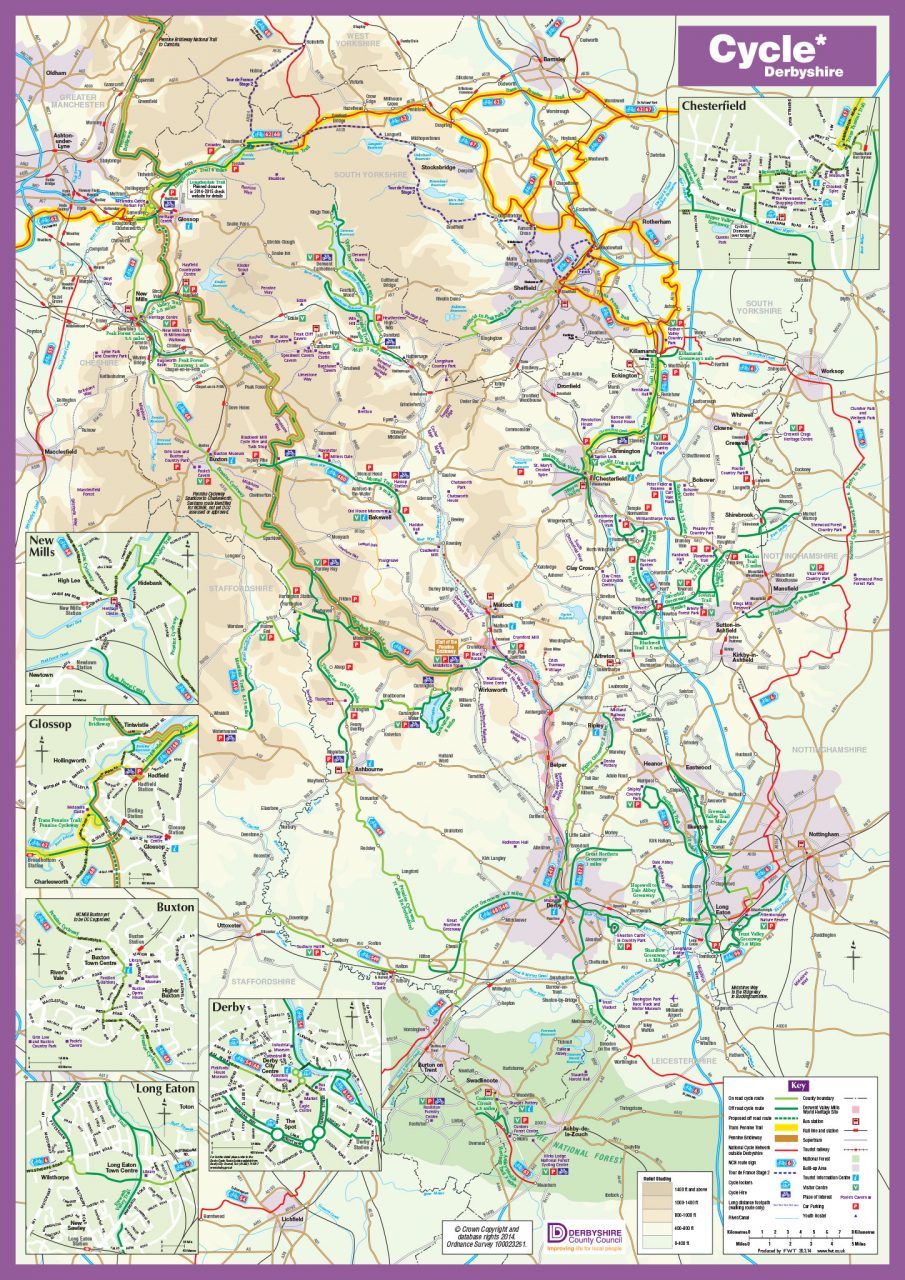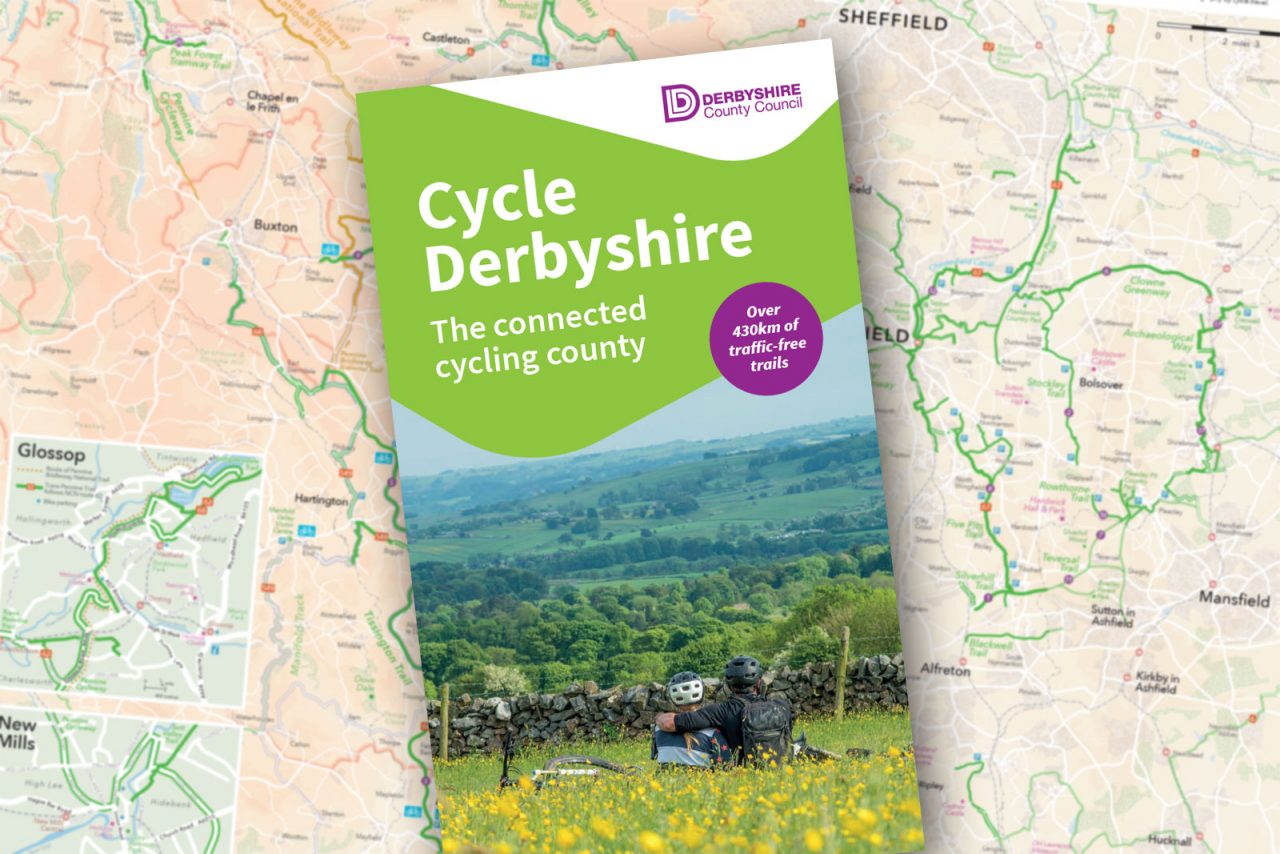
A new ‘Cycle Derbyshire’ guide with completely refreshed mapping has been published by Derbyshire County Council, the first major update and revision to the county’s cycling map since March 2014.
This could’ve quite easily been one of those cycling endeavours which just falls by the wayside. Almost seven years out of date, the Cycle Derbyshire map looked doomed to be forgotten.
Instead, the council have completed a surprise refresh of the entire map. The new 2021 edition uses brand new mapping provided by cycle.travel, an ambitious online cycle touring mapping service which itself is based on Open Street Map.
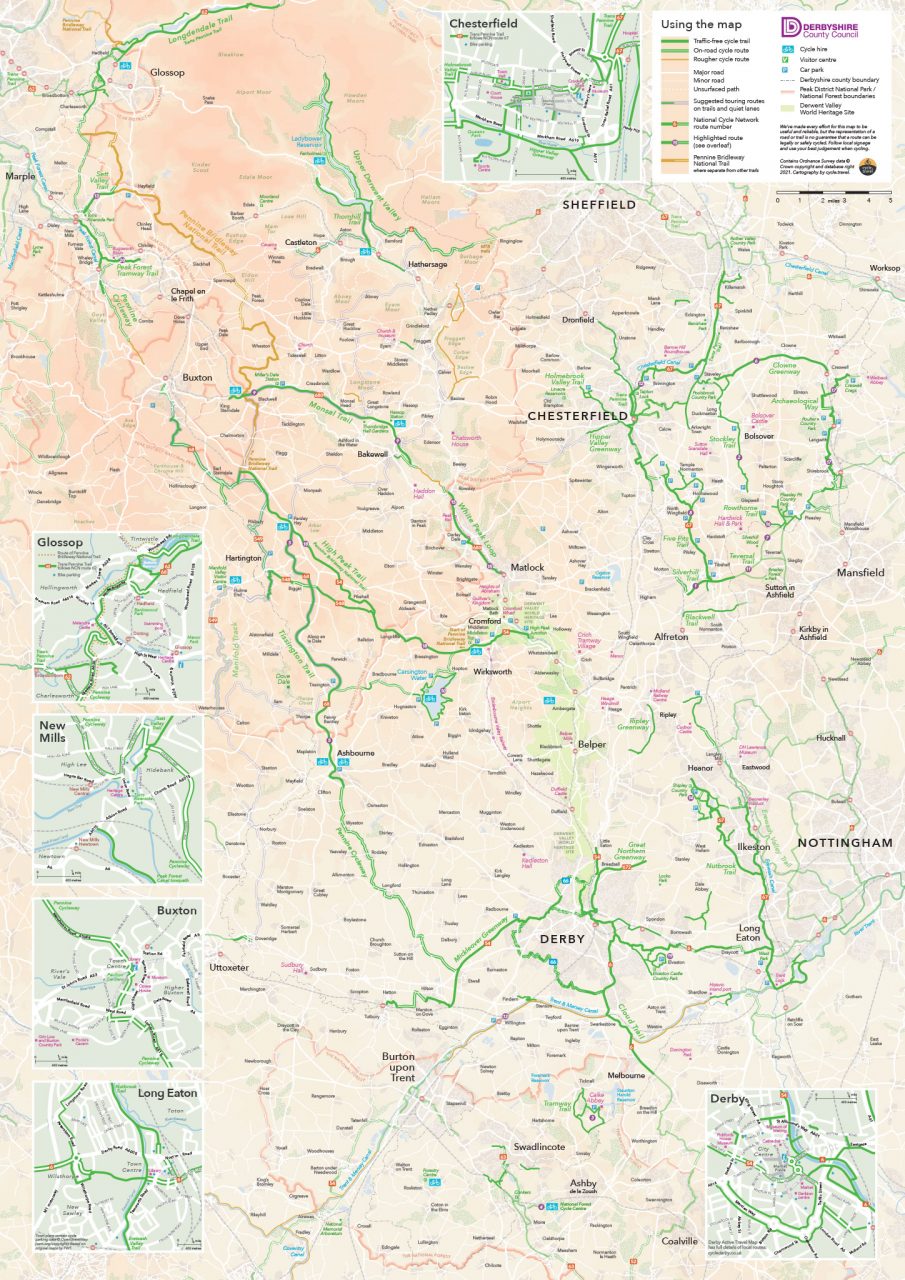
Besides simply looking fresher and clearer, the new map includes far, far more useful roads than the old edition, particularly smaller lanes more suited to cycling. Meanwhile, the Pennine Bridleway which is incredibly challenging in places for cycling, has taken a firm back seat.
Even if it doesn’t include as many brand new links as we’d like, given seven years have passed, there are still important additions like the White Peak Loop paths over Staker Hill south of Buxton (Route 68) and the trail alongside Peak Rail from Matlock to Rowsley.
Over the other side of Chesterfield, the council’s new Clowne Greenway completes a large, circular off-road network.
For the High Peak, though, blimey — just look at those gaps. This is as much a tool to show the desperate holes in the cycle network of north west Derbyshire as to actually help you get anywhere by bike.
There’s an enormous, empty band running right the way across the key entry to the Peak District from the Greater Manchester area. No wonder the National Park is flooded with cars every weekend.
This county council has one heck of a challenge ahead to join its scattering of off-road routes into a usable cycle network for the 21st Century, especially where routes into and around towns are concerned.
Chapel-en-le-Frith has no routes in or out. Glossop town centre has nothing. Buxton still makes do with the near-useless “Pennine Cycleway” which actually consists solely of signposts.
This includes a section on the busy and completely unpleasant A515 London Road, plus an unforgiving, increasingly busy climb to Harpur Hill. It’s not exactly Bee Network-quality.
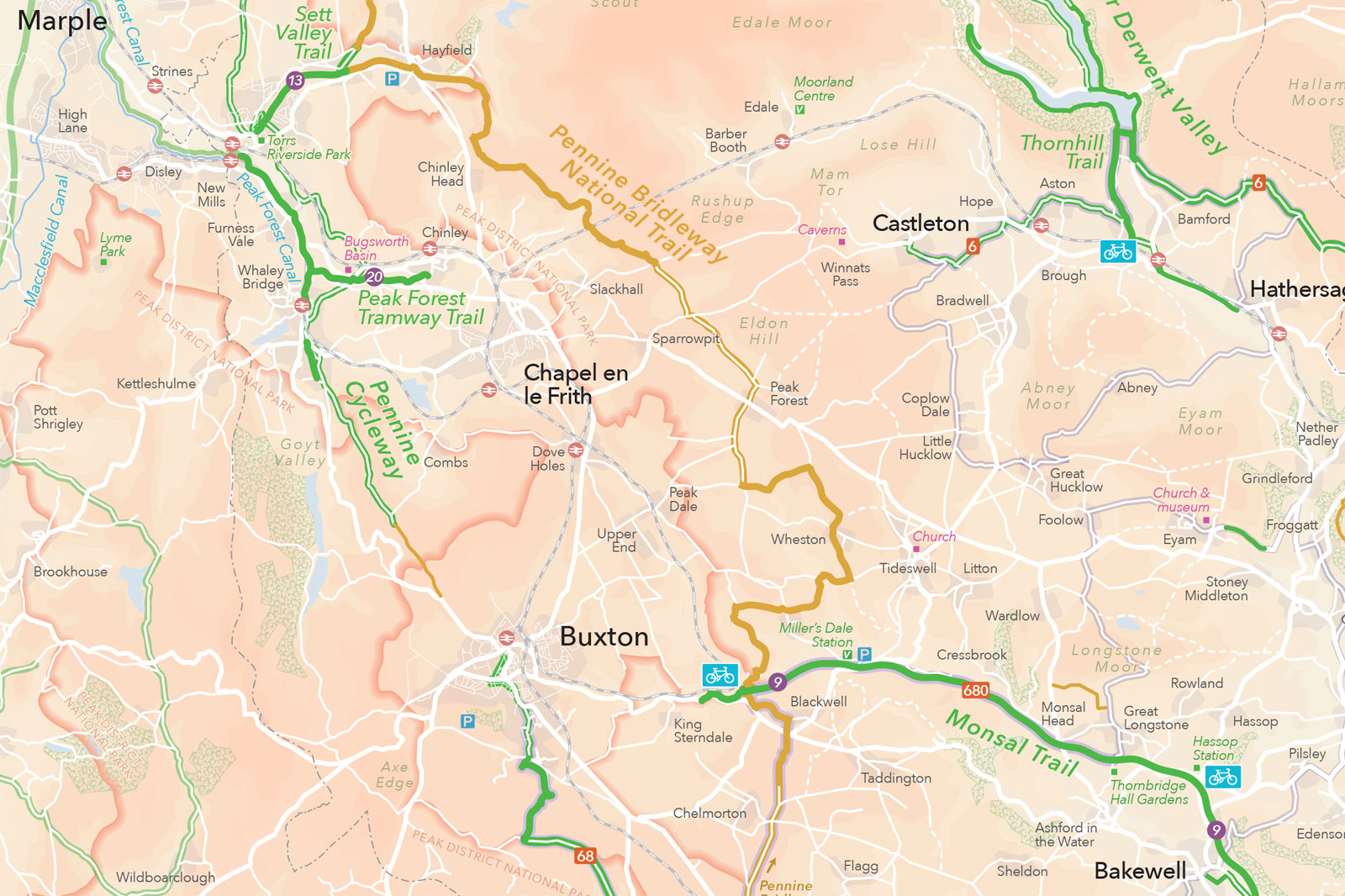
The design of the new map is at least now honest enough to mark “rougher” routes, a big, big upgrade from the last edition. However, I do wonder if the green lines used either side of roads to denote “on-road cycle routes” could suggest to newcomers that there’s actually some kind of cycle infrastructure on the ground there. There isn’t!
Looking in more detail, it’s welcome to note that the even more unsuitable climb out of Buxton on the A5004 Long Hill has been fully removed from the main map, just as Sustrans removed it from their numbered network.
Yet, on the detailed town map, this fast and intimidating road, with an awkward right-turn at the top, remains — with green lines either side of the road and labelled “Pennine Cycleway”. Perhaps a mistake, but it’s still not helpful to label any of this challenging route this way.
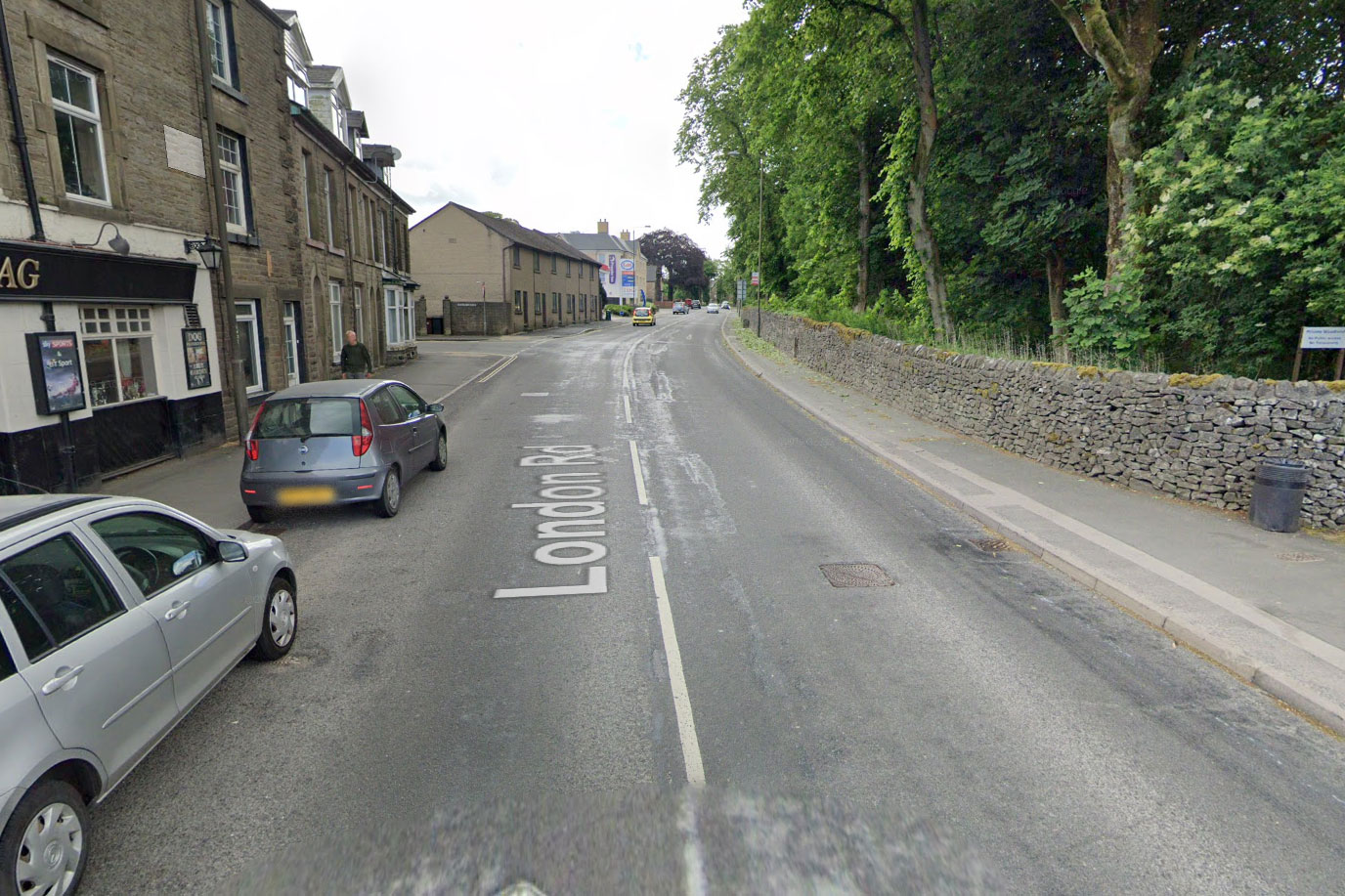
Other routes are marked with fainter purple lines as “suggested touring routes”. This is a better approach and far more honest, and is probably how the so-called Pennine Cycleway should’ve been marked.
The Transport for Greater Manchester maps, for example, give these kind of “quiet routes” a plain yellow shading, and mark 20mph zones in blue. It’s obvious they are just suggested routes, not actual infrastructure/paths you can rely on for a safe journey.
Even then, it’s doubly odd that there are none of these quieter touring routes marked in the High Peak. I’m sure they could’ve found a few? Where even is that cycling mecca, the Goyt Valley? Very strange.
Perhaps I shouldn’t be disappointed — all the more reason for people to pay Peaks & Puddles a visit instead and try the Cycle Routes I’m gradually adding here.
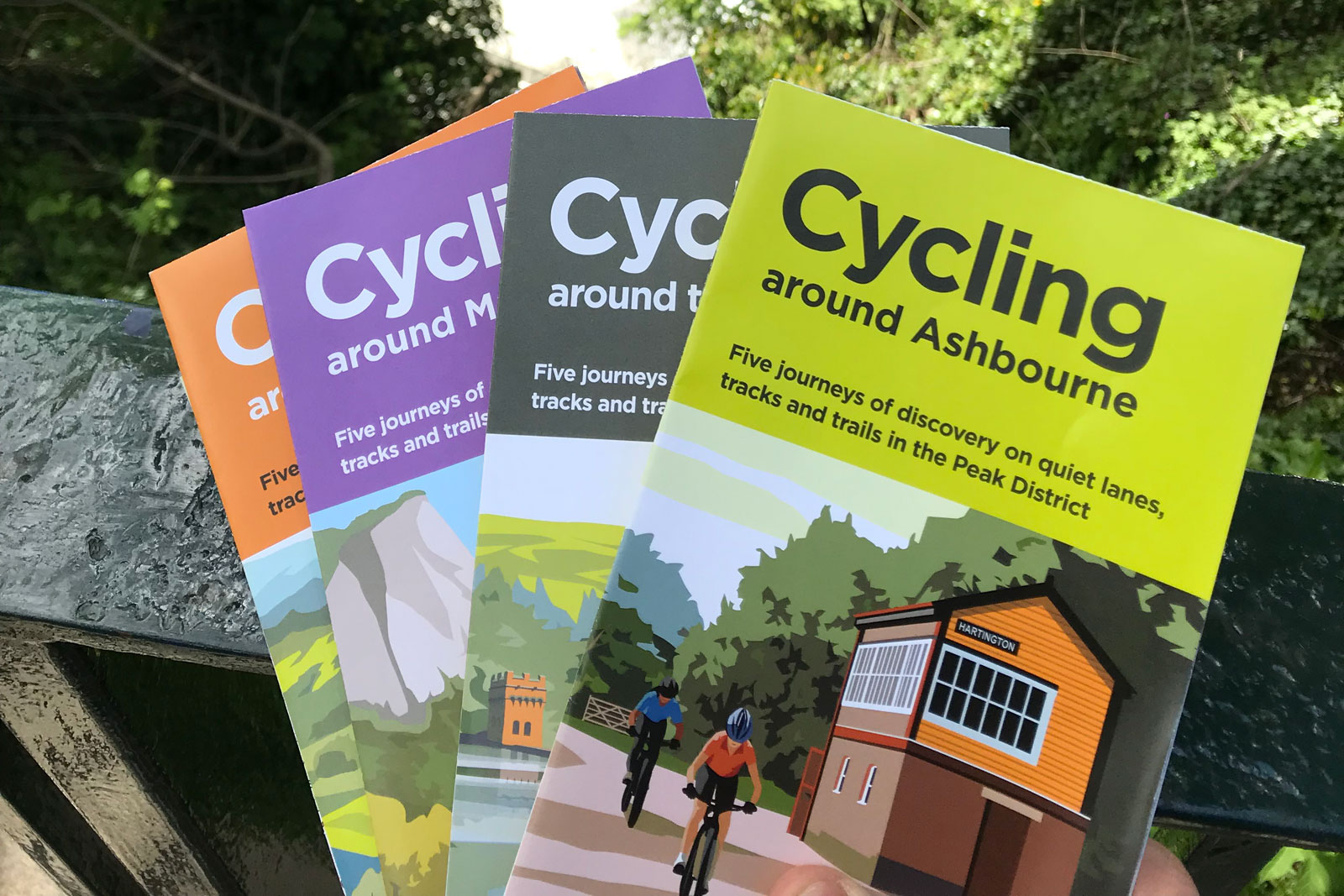
Fitting an entire county the size of Derbyshire onto a single map sheet isn’t easy of course, and it’s still best seen as simply an overview of what’s on offer. It really does feel quite a wonder that this new, updated edition exists at all, so that’s to be congratulated.
Will the next edition have something new to bridge the “High Peak gap” and allow us south east of Manchester to actually safely access the rest of Derbyshire? We can but dream.
Final note: If you’re squinting to see it, it’ll be worth finding a printed copy when they’re available soon. The old maps measured a good 42 x 59 cm, making things much clearer than any screen.

